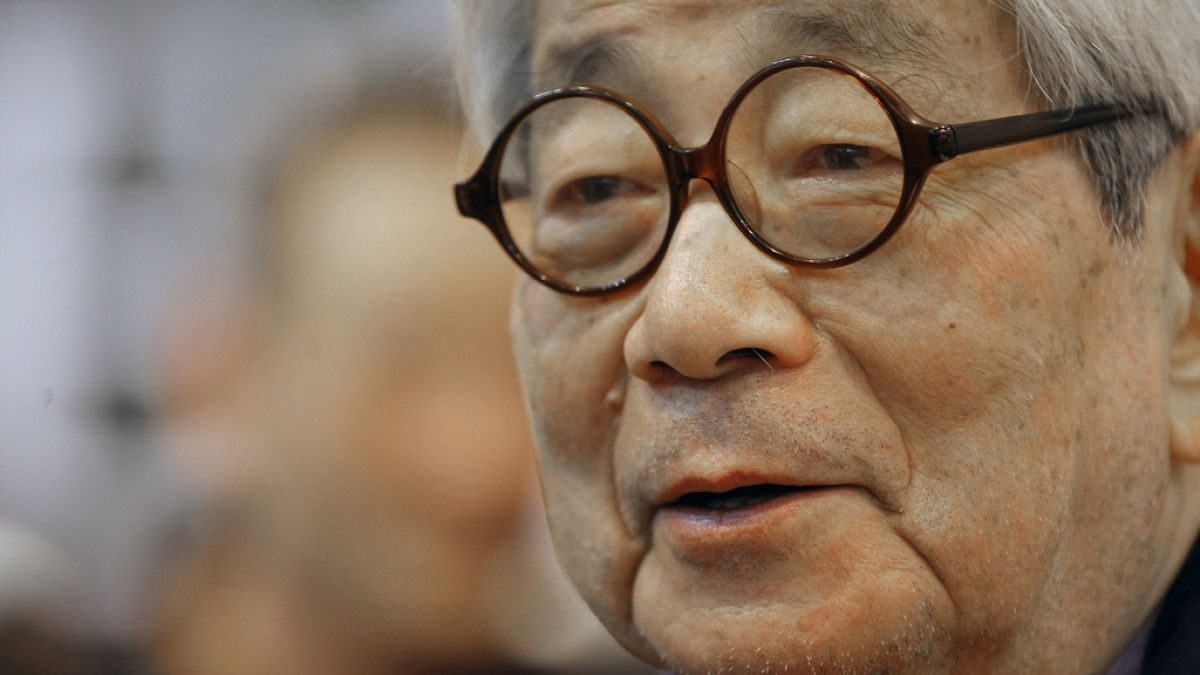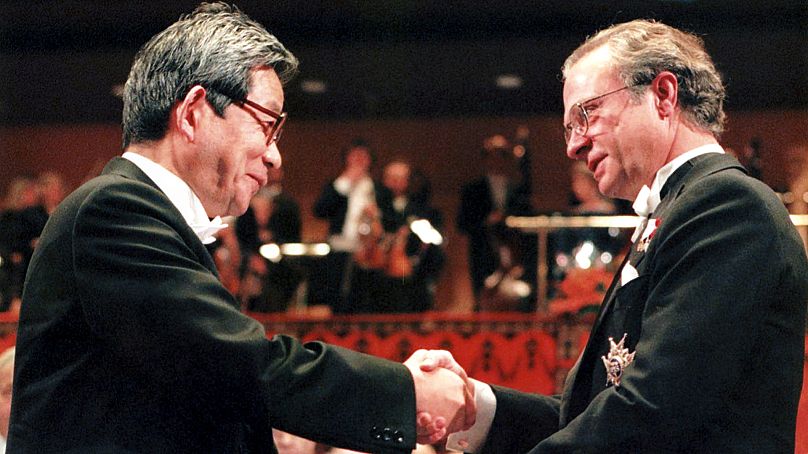The Japanese citizen, who wrote about war and his disabled son, was vocal as a pacifist alongside his worldwide literary success
Nobel Prize winning author Kenzaburo Oe has died, aged 88.
The Japanese writer, who won his country its second Nobel Prize for literature, was best known for his works about the horrors of war as well as the life of his disabled son. He was known too as a prominent campaigner against nuclear weapons and nuclear power.
Oe passed away on 3 March 2023. His publisher Kodansha said his death was due to old age.
He won the Nobel Literature Prize in 1994, after judges praised his "darkly poetic" novels for their "disconcerting picture of the human predicament".
Oe was ten years old when Japan was defeated in the Second World War and was scarred by his memories. At school, he was asked on a daily basis if he was willing to die for the country’s Emperor and felt shame when he realised he wasn’t.
He studied French literature at the University at Tokyo in 1954 and began writing plays. While there, he won the Akutagawa Prize, a career-launching award for young writers. In 1959, he made his literary debut with ‘The Catch’, a novel about an American pilot who was shot down and imprisoned by rural Japanese villagers. The story won critical acclaim and saw Oe hailed as the most promising young writer since Mishima Yukio.
His star continued to rise in the 1960s with his work ‘Hiroshima Notes’, a selection of essays about the victims of the atomic bomb and those who cared for them. He also published ‘A Personal Matter’, a semi-autobiographical account of a father’s struggle to accept his brain-damaged child. In 1963, Oe’s son Hikari was born with a brain hernia and surgery to correct it left the child with learning difficulties.
Several of Oe's books have characters based on his son - and the Nobel committee singled out a number of these works when awarding him the prize.
He was outspoken about many issues in Japan and he refused to accept Japan's Order of Culture award, given after his Nobel Prize, because it was awarded by the Emperor, saying, "I do not recognise any authority, any value, higher than democracy".
Oe was a lifelong pacifist, becoming an even more vocal critic after the 2011 Fukushima nuclear accident. At the time, he said that Japan had "a sacred duty" to renounce nuclear power as it had done with war under its constitution. In 2013, he headed up an anti-nuclear rally in Tokyo and in 2015 protested then prime minister Shinzo Abe’s announcement that Japanese troops would be allowed to fight abroad.
The iconic author is survived by his wife Yukari as well as his sons Hikari and Sakura and daughter Natsumiko.




